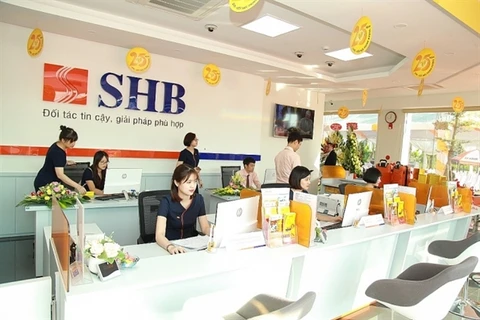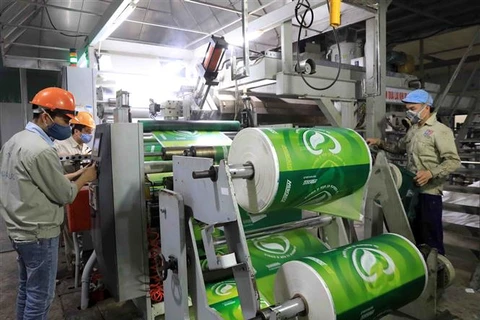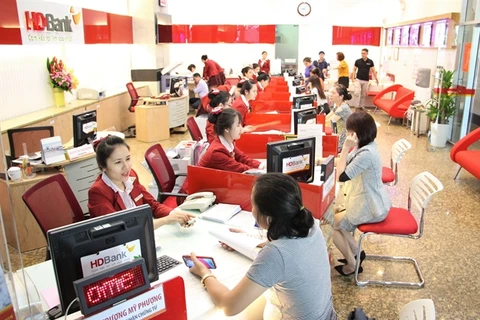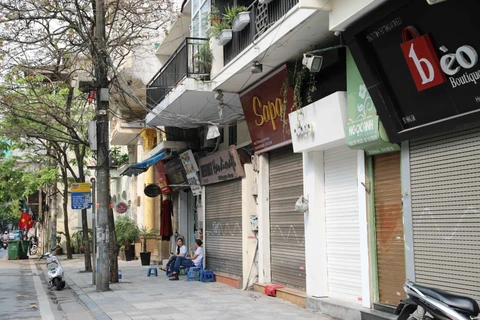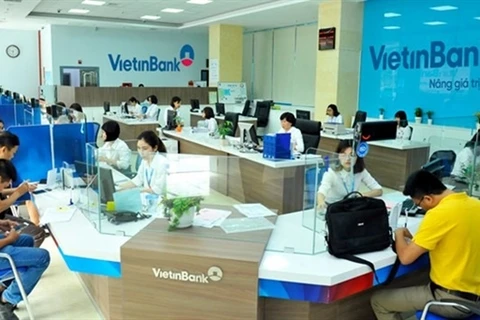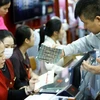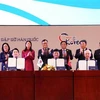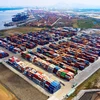Hanoi (VNA) - More measures and policies should be introduced to support enterprises, especially small and medium-sized enterprises (SMEs), in the context of a growing number of businesses temporarily ceasing operations due to the COVID-19 pandemic, economists have said.
Figures from the National Database on Business Registration show that some 6,553 enterprises withdrew from the market during March, a 55.5 percent increase year-on-year. Of these, 2,452 registered to temporarily suspend their operations, or 78.6 percent more than in the same period of 2019.
Meanwhile, nearly 12,300 new enterprises were established during the month with total registered capital of over 131.3 trillion VND (over 5.5 billion USD), down 1.6 percent in number and 2.5 percent in capital year-on-year.
In the first quarter of 2020, the country had 29,711 newly established enterprises, a rise of 4.4 percent year-on-year. This is one of the lowest increases in the number of Q1 newly-established businesses from 2015-2019 (the average increase is 10.9 percent).
During the three-month period, total additional capital in existing enterprises was down 23.5 percent compared to the same period of 2019, revealing that enterprises are afraid of investing more in production and business given the pandemic.
Deputy Minister of Planning and Investment Tran Quoc Phuong said the Government is considering issuing a raft of policies to help enterprises stabilise their production and business activities during these difficult days, particularly measures relating to extensions on timelines for tax payments and introducing tax reductions.
According to Phan Dinh Thuy, head of the General Statistics Office (GSO)’s Industry Statistics Department, the GSO has proposed that priority be given to supporting SMEs and household businesses facing difficulties in securing materials for production.
Relevant authorities, he went on, should also adopt special policies to support enterprises operating in agriculture, transport, and tourism, which have been most affected by the pandemic.
He added that credit institutions need to ensure they hold adequate capital for production and business, especially for seasonal sectors and those facing difficulties regarding consumption.
Meanwhile, Nguyen Viet Phong from the GSO’s Construction and Investment Capital Department stressed the importance of public investment in promoting growth in the construction sector.
He explained that every 1 percent of growth in public investment in the sector contributes 0.06 percentage points to GDP growth.
The Government, he continued, has paid due regard to flexibly operating monetary policy, interest rates, and exchange rates in accordance with domestic and international market movements, at the same time harmonizing fiscal and other macroeconomic policies to control inflation, support production and business, and promote economic growth.
Most economists agree that relevant authorities need to focus on other solutions such as increasing the ability to meet production needs, promoting the development of the domestic market, meeting the internal demands of the economy, and gradually replacing imported goods with domestically-produced goods./.
VNA

